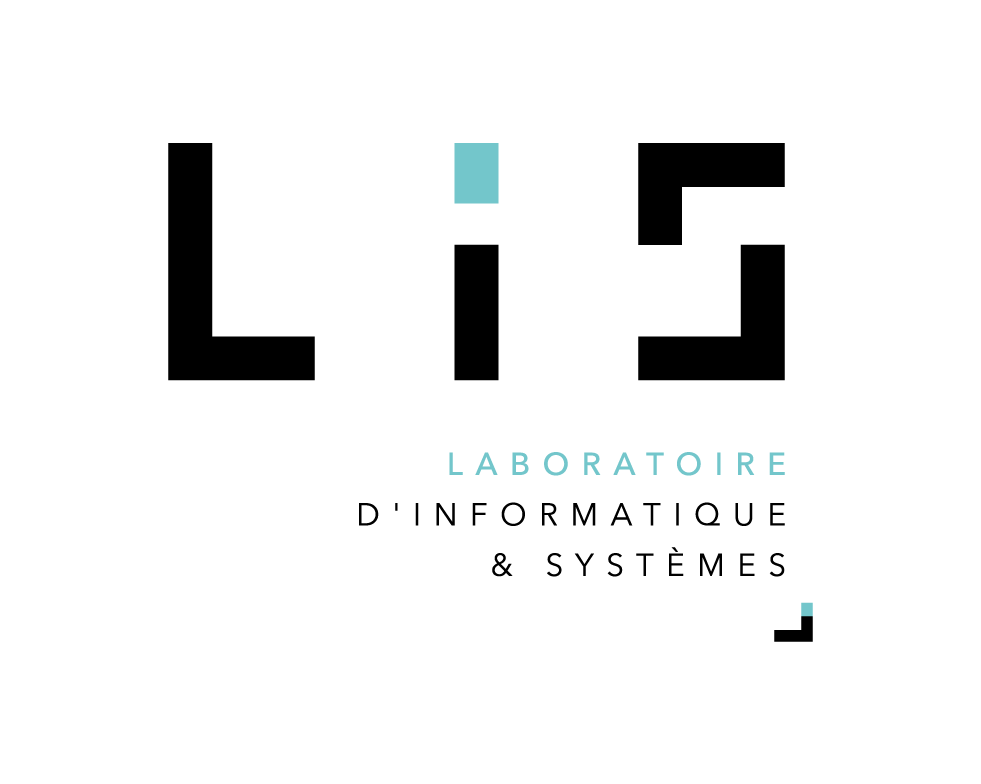WORKSHOP
Advances in Interactive and Quantitative Semantics
Avancées en Sémantiques Interactives et Quantitatives
26 – 28 May, 2025
Organizing Committee
Comité d’organisation
Pierre Clairambault (CNRS, LIS, Aix- Marseille Université)
Lionel Vaux Auclair (Aix- Marseille Université)
The workshop marks the end of the ANR project DyVerSe (Dynamic Versatile Semantics). This project fits in the theory of programming, a research field consisting in the mathematical study of the core principles behind programming languages and their execution. In particular, denotational semantics aims to provide mathematical models for programming languages, seeking to understand compositionally various programming features.
Denotational semantics involve various mathematical tools imported from logic, topology, algebra, measure theory, and others. Typically, the mathematical tools involved resemble the targeted programming features: for instance, purely functional programming can be modeled with simple sets and functions, but handling probabilistic primitives will necessitate a marriage between functions and probability theory. But in programming languages, effects can be mixed. And because denotational models are typically so feature specific, they combine badly, and the relations between different models are often poorly understood. DyVerSe was originally inspired by signs that linking these distinct models is possible, through a mathematical structure that is sufficiently intensional, i.e. keeping enough information about execution.
During the project, we made significant advances in this direction. But these developments additionally uncovered a connection that we had not anticipated: our proposed candidate for this synthesis, « concurrent games », also has strong connections with a family of techniques collectively known as quantitative semantics. These differ from traditional denotational tools in that, inspired from linear logic, they give a proper status to resources and their multiplicity. We expanded the original scope of DyVerSe by exploring these links, in doing so connecting the only two lines of work in semantics being recently awarded the prestigious Alonzo Church award: game semantics in 2017, and differential linear logic in 2024.
The objective of the workshop is twofold: on the one hand, the goal is to mark the end of this project, and to synthesise and advertise some of its achievements. On the other hand, we wish to help animate the scientific community around interactive and quantitative semantics and invite researchers whose results resonate with those of DyVerSe, fostering new ideas and collaborations.
Le workshop marque la fin du projet ANR DyVerSe (Sémantique Dynamique Versatile). Ce projet s’inscrit dans la théorie de la programmation, un sujet de recherche qui vise à étudier mathématiquement les principes fondamentaux derrières les langages de programmation et leur exécution. En particulier, la sémantique dénotationnelle vise à produire des modèles mathématiques des langages de programmation, cherchant à comprendre compositionnellement divers aspects de la programmation.
La sémantique dénotationnelle implique des outils mathématiques importés de la logique, la topologie, l’algèbre, la théorie de la mesure, et d’autres. Typiquement, les outils mathématiques en jeu ressemblent aux primitives de programmation visés : par exemple, la programmation fonctionnelle pure est représentée par des ensembles et fonctions, là où les primitives probabilistes nécessitent un mariage entre fonctions et théorie des probabilités. Mais dans les langages de programmation, les effets peuvent se mélanger. Et puisque les modèles dépendent si spécifiquement des effets considérés, ils se combinent mal ; les relations entre différents modèles sont souvent mal compris. DyVerSe était à l’origine inspiré par des signes qu’une synthèse entre différents modèles était possible, à travers une structure mathématique suffisamment intensionnelle, c’est à dire rendant compte suffisamment précisément de l’éxécution.
Le projet a permis des avancées notables dans cette direction. Mais il a également mis en lumière une connexion non anticipée : notre modèle candidat pour cette synthèse, les « jeux concurrents », a également des liens forts avec une famille de techniques connues collectivement comme la sémantique quantitative. Les modèles quantitatifs diffèrent des modèles traditionnels en ce qu’à l’instar de la logique linéaire qui les inspire, ils donnent un statut propre aux ressources et leur multiplicité. Le projet s’est donc étendu à l’exploration de ces liens, liant ainsi les deux seules directions de recherche en sémantique ayant reçu le prestigieux prix Alonzo Church : la sémantique des jeux en 2017 et la logique linéaire différentielle en 2024.
Ce workshop a deux objectifs. D’une part, l’objectif est de marquer la fin du projet, et de faire connaître certains des résultats obtenus. D’autre part, nous souhaitons participer à l’animation des communautés en sémantiques intéractive et quantitative, et inviter des chercheurs dont les résultats résonnent avec ceux de DyVerSe, alimentant de nouvelles idées et collaborations.
SPEAKERS
Aurore Alcolei (Université Paris-Est Créteil) Enriched concurrent games: witnesses for proofs and resource analysis
Stefano Catozi (Université Sorbonne Paris Nord) On Pointers, Interactions, and Intersections
Davide Catta (Université Sorbonne Paris Nord) Game semantics and a new lambda calculus for the constructive modal logic CK
Pierre Clairambault (CNRS, LIS, Aix- Marseille Université) Some results of the Dyverse project
Marcelo Fiore (University of Cambridge) Superspecies
Simon Forest (Aix-Marseille Université) An introduction to thin spans
Guilhem Jaber (Université de Nantes) Denotational semantics from Operational Game Semantics via Geometry of Interaction (Work In Progress)
Jim Laird (University of Bath) Stable Cost Models
Adrienne Lancelot (Université Paris Cité) Interaction Equivalence
Éléonore Mangel (IRIF) Classical notions of computation and the Hasegawa-Thielecke theorem
Paul-André Melliès (CNRS & Université Paris Cité) Tensorial and algebraic effects
Federico Olimpieri (Aix-Marseille Université) Linearization via Rewriting
Hugo Paquet (Inria & ENS Paris) Concurrent dialogue 2-categories
Vincent Sommella (University of Sussex) Relational semantics: from simple to non-idempotent intersection types and back
Glynn Winskel (Queen Mary University of London) Symmetry and Enrichment of Games and Strategies



